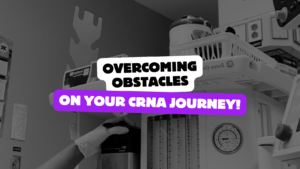Transitioning from working as an ICU nurse to becoming a Certified Registered Nurse Anesthetist (CRNA) is a journey marked by immense growth but also profound challenges.
It’s a path that demands not only clinical excellence but also a significant shift in roles—from direct patient care in a high-intensity setting to the precision and autonomy of anesthesia.
Here’s a closer look at what this transition entails and how the Society of Future Nurse Anesthetists (SFNA) supports aspiring CRNAs in navigating these changes.
Understanding the Shift
The transition from ICU to operating room (OR) involves a fundamental change in responsibilities. ICU nurses are adept at managing complex critical care situations, which provides a solid foundation for a career in anesthesia. However, the role of a CRNA brings unique challenges, including the need for acute decision-making capabilities under pressure, comprehensive knowledge of anesthesia drugs and their effects, and the ability to work autonomously.
Preparing for the Transition
- Enhanced Education and Training: Advancing from an ICU nurse to a CRNA requires rigorous formal education and training. Prospective CRNAs must complete a master’s or doctoral program in nurse anesthesia—intensive programs that build on the critical care experience with specialized knowledge in anesthesia.
- Mentorship and Support: Having access to mentors who have successfully made this transition can be invaluable. SFNA offers a mentorship program that connects members with experienced CRNAs who provide guidance, support, and insights from their own journeys.
- Building New Skills: Beyond clinical skills, transitioning to the OR requires development in areas such as patient assessment specific to anesthesia, understanding of pharmacology, and technical skills related to anesthesia equipment and techniques.
- Adapting to New Environments: The pace and atmosphere of the OR can be very different from the ICU. CRNAs often manage multiple cases daily and must adapt quickly between different surgeries and patient needs.
SFNA: Your Partner in Transition
SFNA understands the hurdles that ICU nurses face when aspiring to become CRNAs. Our programs and resources are designed to support you through every step of your transition:
- Educational Resources: Access our comprehensive online courses and materials that prepare you for advanced studies and certifications in nurse anesthesia.
- Networking Opportunities: Connect with a community of professionals who share your goals and challenges. Our community can help you build relationships that facilitate career advancement.
- Wellness Resources: Transitioning roles can be stressful. SFNA offers wellness resources to help you maintain balance and resilience during this critical period.
Join SFNA Today
Start your journey to becoming a CRNA with confidence. Join SFNA today, and take advantage of our supportive community, educational resources, and career development opportunities. Together, we make the transition from ICU to OR not just possible, but successful.







